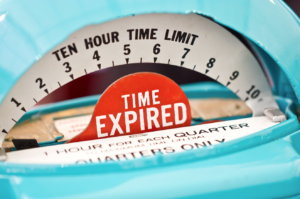On July 16th, 1935 the world’s first parking meter was installed in Oklahoma City, OK. The Magee-Hale Park-O-Meter Company was born and citizens across the city began to feel the benefits of regimented parking. Prior to this newfound technology, people parked willy-nilly and local businesses suffered when potential customers couldn’t find an open space.
Fast forward. Years passed; vehicles and cell phones grew brains, but none of this technology seemed to translate to the parking industry. However, just within the last decade the parking issues that have long faced drivers are being addressed using modern and efficient machinery.
Parking garage access gates began to open with the flash of an RFID card or snap of a license plate recognition (LPR) camera. Additionally, the same technology would soon allow parking garage owners to track time parked and allow the driver to locate their vehicle amongst a concrete parking maze.
As the technology on streets and in garages advanced, the next natural step was to integrate this hardware with online software. Mobile parking applications like Parker, ParkWhiz, and ParkMobile allow drivers to book spaces on the street, in garages, near stadiums, or in airports remotely from a smartphone. This combination of parking hardware and smart software has cut commute times for drivers, added efficiency to the parking industry, and ultimately saved money for drivers and parking management.
Today, the American parking industry is set to grow by 10%—hitting nearly $6 billion by 2023. Most recently, an influx of big data has made way for smart parking technology and software. Think about it, every time a customer buys a product online: their personal info is gathered, email address is logged, and suggestions are made for future purchases. This same process is now being applied to drivers as they pay for street parking or enter a garage.
Knowing the customer and understanding the customers’ trends is and will continue to be the most monumental way that worldwide parking management can serve these drivers. Businesses like Smarking are beginning to collect data from parking hardware and software apps and are analyzing it to predict ways to better service these customers.
The future for parking is quite bright. The combination of new technology, software, and big data will have a profound effect on the industry as a whole. Soon enough, parking administrators will know how to track the demand for parking and make suggestions to drivers telling them when and where to park. Whether or not people will want to automate their driving is one thing, however if given the option to automate parking, it’s fairly safe to say drivers would rather not give it a second thought.

